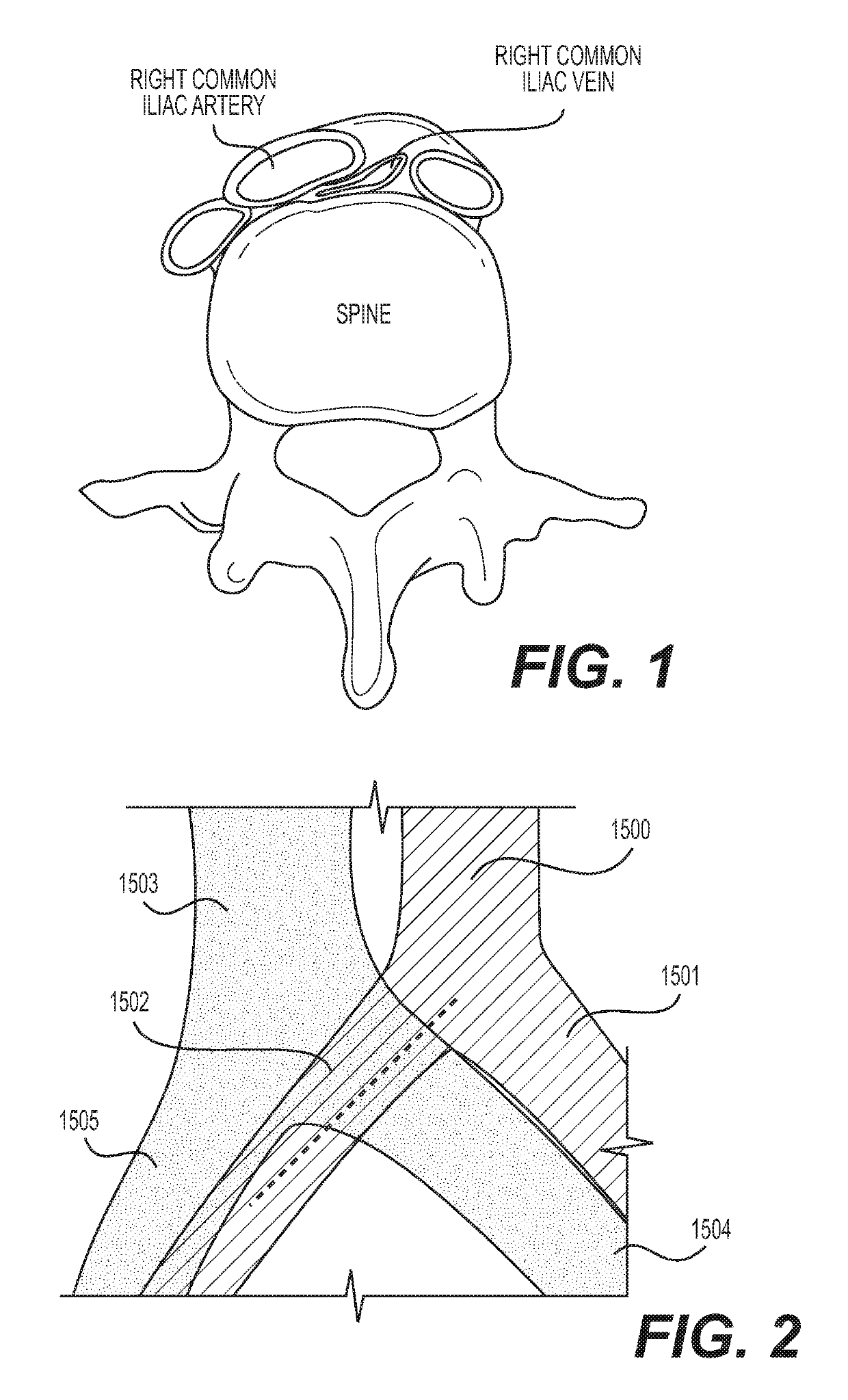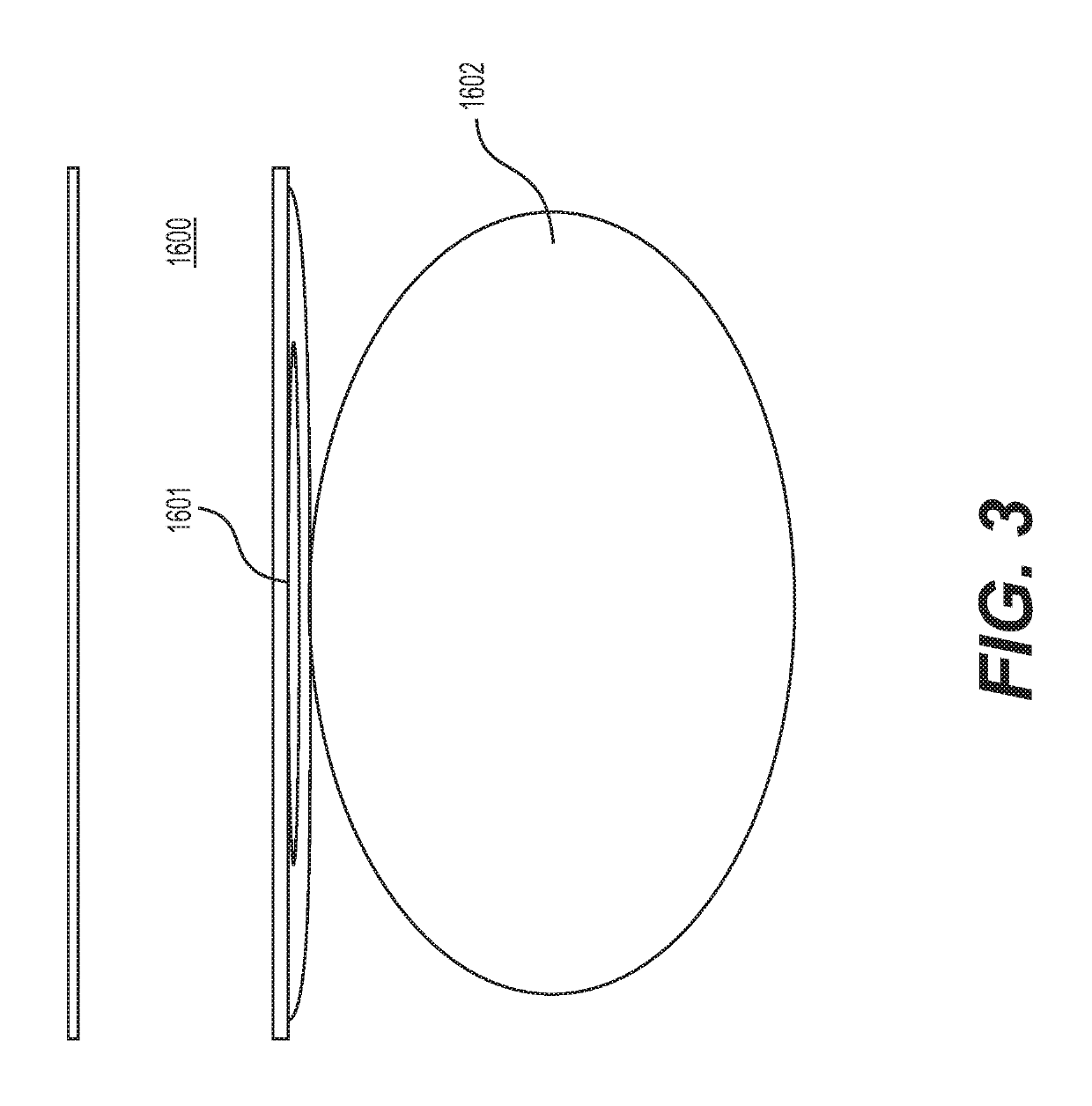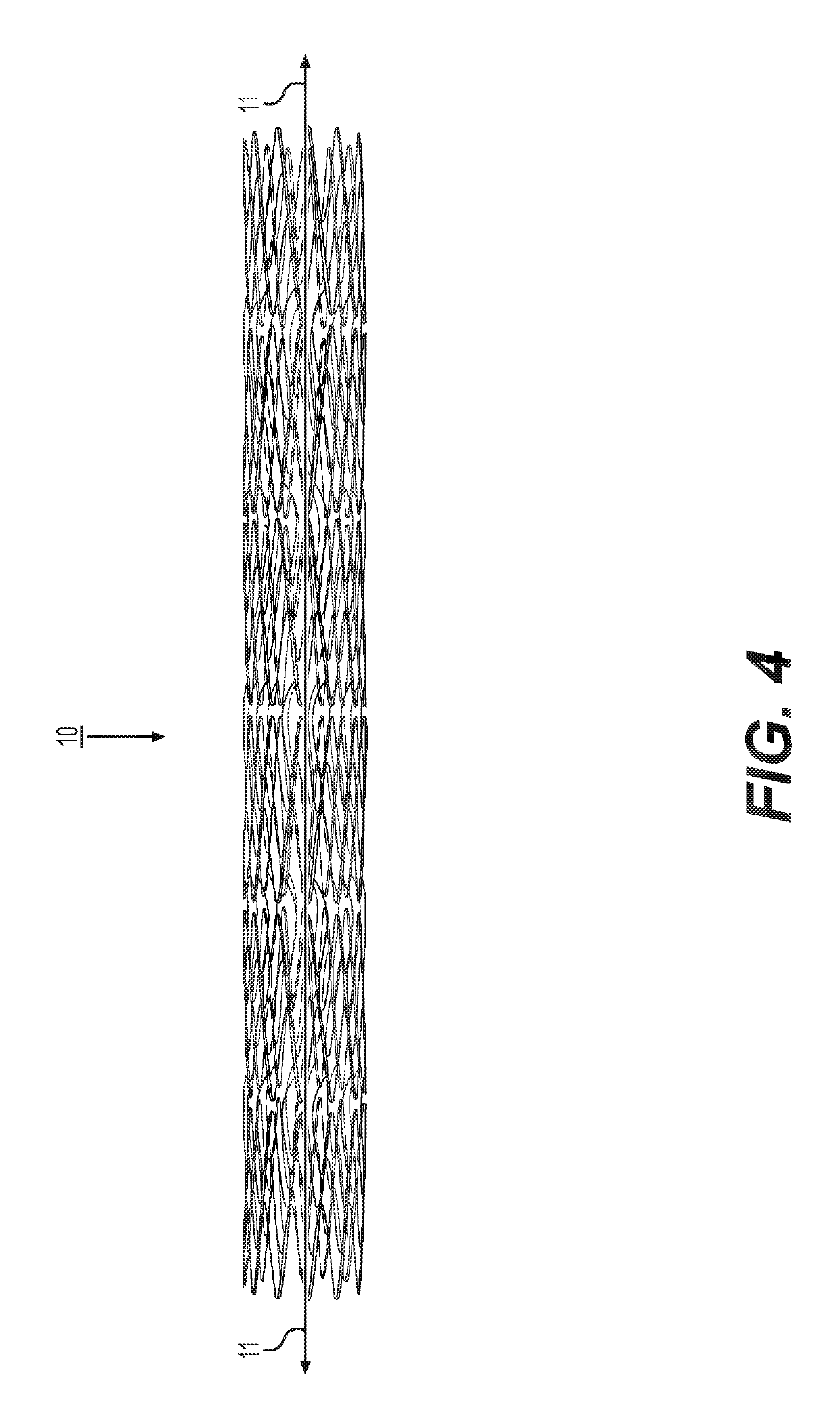Implantable stent
a stent and implantable technology, applied in the field of stents, can solve the problems of veins that may also develop intraluminal fibrous spurs, blood clot formation in some individuals, neurological symptoms, etc., and achieve the effects of improving flexibility, and reducing the risk of clot formation
- Summary
- Abstract
- Description
- Claims
- Application Information
AI Technical Summary
Benefits of technology
Problems solved by technology
Method used
Image
Examples
Embodiment Construction
[0048]The inventors have observed certain problems in the prior art associated with foreshortening of stents, and in particular foreshortening of stents used for venous applications. Foreshortening causes difficulty in accurately placing the stent in the patient's lumen, since the end which exits the delivery system first will either move the lumen or move in the lumen, toward the constrained end during the deployment. Additionally, this movement can cause trauma to the already compromised / fragile lumen being treated.
[0049]Accurate placement is ideal in all medical interventions, but it is vital in areas where the end that is first deployed is critical. Such areas include at vessel bifurcations and branch vessels, so that the implant does not enter or interfere with the portion of the vessel that does not require treatment. Such a bifurcation is present at the inferior vena cava where it branches into right and left iliac veins, as described in more detail below.
[0050]May-Thurner sy...
PUM
 Login to View More
Login to View More Abstract
Description
Claims
Application Information
 Login to View More
Login to View More - R&D
- Intellectual Property
- Life Sciences
- Materials
- Tech Scout
- Unparalleled Data Quality
- Higher Quality Content
- 60% Fewer Hallucinations
Browse by: Latest US Patents, China's latest patents, Technical Efficacy Thesaurus, Application Domain, Technology Topic, Popular Technical Reports.
© 2025 PatSnap. All rights reserved.Legal|Privacy policy|Modern Slavery Act Transparency Statement|Sitemap|About US| Contact US: help@patsnap.com



